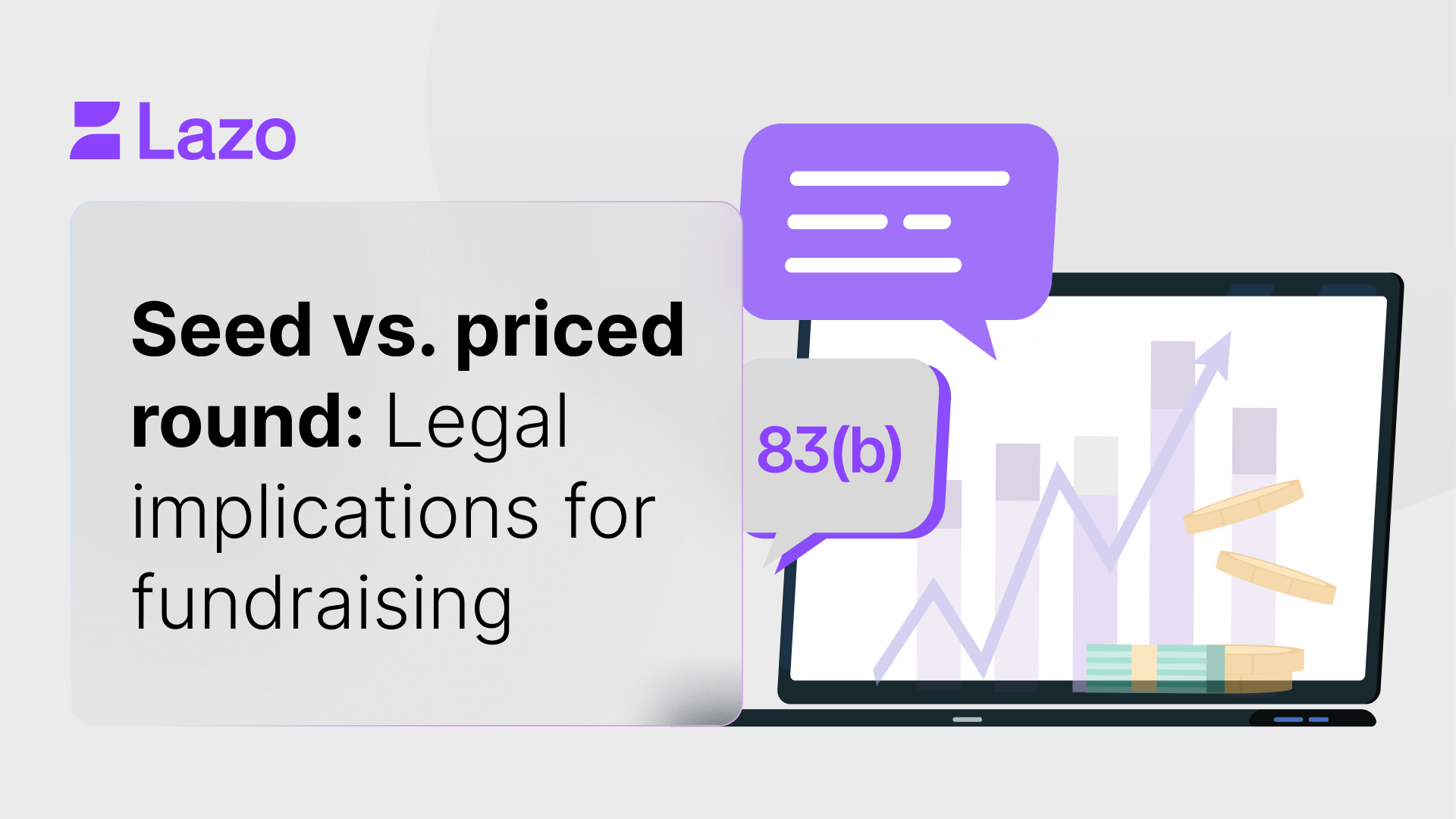Login to your Lazo One account here
Login

The journey of a startup is often marked by key fundraising milestones. The first significant capital infusion usually comes in one of two forms: a Series Seed round or a Priced Round. While both aim to inject capital, their underlying mechanics and legal ramifications differ significantly.
A Series Seed round is typically the earliest stage of institutional funding a startup receives. It's characterized by its flexibility and often by simpler legal documentation.
👉 Incorporation implications: If you're raising through a Series Seed, your corporate structure must be prepared to handle equity issuance once the conversion happens. That means having sufficient authorized shares and a clean cap table from the start.
A Priced Round, often a Series A, involves investors purchasing equity at a set price and valuation, making it a more formal and structured process.
🧾 This is where a solid incorporation and fundraising strategy become critical to avoid friction with investors later on.
Regardless of the fundraising path you choose, certain legal considerations are universal for U.S. startups:
The decision between a Series Seed and a Priced Round depends on your startup's stage, valuation expectations, and immediate capital needs.
In either scenario, having experienced legal and bookkeeping support is non-negotiable. It ensures your incorporation is solid, your fundraising documents are sound, and your financial reporting is investor-ready.
Fundraising isn’t just about bringing in capital, it’s about building on a solid foundation. Many startups stumble not because their idea isn’t good, but because their U.S. entity wasn’t structured properly from the start, their cap table was messy, or their compliance didn’t keep pace with growth.
When your legal and financial base is weak, even a great round can turn into operational chaos. That’s why aligning your structure for fundraising early on isn’t optional. Clear governance, clean records, and reliable bookkeeping aren’t just nice-to-haves; they’re what give investors confidence to write bigger checks.
If you’re planning your next move, don’t wait until you’re in the middle of a round to fix what should’ve been solid from day one. Schedule a call with our team to map out your strategy, explore the right pricing structure for your stage, or join our webinars to learn how other founders are scaling smarter. More resources are always available at Lazo.